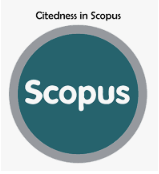Evaluating the Effectiveness of Outcome-Based Curriculum Implementation in Improving 21st-Century Skills Among Secondary School Students
DOI:
https://doi.org/10.56404/jels.v5i2.175Keywords:
Outcome-Based Curriculum, 21st-Century Skills, Curriculum Implementation. Student-Centred LearningAbstract
The demands of the 21st century require educational systems to equip students with critical competencies such as creativity, critical thinking, communication, collaboration, and digital literacy. To meet these demands, many educational institutions have adopted an Outcome-Based Curriculum (OBC) framework, designed to ensure that learning outcomes are measurable, competency-driven, and aligned with future workplace requirements. This study aims to evaluate the effectiveness of OBC implementation in enhancing 21st-century skills among secondary school students. Employing a qualitative library research approach, this study synthesises findings from 55 international peer-reviewed journals, academic books, and policy documents published between 2018 and 2024. The findings reveal that schools implementing OBC demonstrate significant improvements in students’ problem-solving skills, creativity, and collaborative learning outcomes. Furthermore, integrating OBC with digital learning tools and student-centred pedagogies enhances engagement and prepares students to adapt to rapidly changing global challenges. The results underscore the importance of professional teacher training, adequate learning resources, and robust assessment frameworks to ensure successful OBC implementation.
References
Ab Rahman, S. F. (2024). The Controversy of Hymenoplasty in Islamic Law and Saddu Al-Dhara’i Perspective for Contextual Learning. JTL: Journal of Teaching and Learning, 1(2), 91–106.
Abror, S., Mutrofin, M., & Hardinanto, E. (2024). Reimagining Teacher Professional Development to Link Theory and Practice. JTL: Journal of Teaching and Learning, 1(1), 22–36.
Ahmed, N. H., Andersion, J., & Martínez, A. (2024). Innovative Blended Learning Approaches to Enhance Student Engagement in University. JTL: Journal of Teaching and Learning, 1(1), 1–21.
Anjani, M., Nurahmayanti, & Amalia. (2025). The Role of School Principals in Conflict Mediation and Policy Negotiation with Teachers at SMP Negeri 1 Parigi. IJEMR: International Journal of Education Management and Religion, 2(1), 27–35.
Arifah, E. K., & Noor, T. R. (2025). Analysis of Supporting and Inhibiting Factors in Learning at Community Learning Activity Centers. IJEMR: International Journal of Education Management and Religion, 2(1), 36-45.
Aziz, A. (n.d.). Curriculum Development in Indonesian Education. Jurnal Pendidikan Dan Pembelajaran Dasar, 3(2), 2011.
Darling-Hammond, L. (2000). Teacher Quality and Student Achievement: A Review of State Policy Evidence. Education Policy Analysis Archives, 8(1).
Darling-Hammond, L., Wei, R. C., Andree, A., Richardson, N., & Orphanos, S. (2009). Professional Learning in the Learning Profession. DC: National Staff Development Council, 12(10).
Fink, A. (2019). Conducting research literature reviews: From the internet to paper. Sage publications.
Goldblatt, P. F. (2006). How John Dewey’s Theories Underpin Art and Art Education. Education and Culture, 22(1), 17–34. https://doi.org/10.1353/eac.2006.0001
Habibulloh, M. (2024). The Role of Islamic Education in Building Interreligious Tolerance in Indonesia. IJEMR: International Journal of Education Management and Religion, 1(2), 63–82.
Habibulloh, M., Sholeh, M. I., & Idawati, K. (2024). Exploring Technological Innovations and Approaches in Modern Education. SAHRI: Journal of Studies in Academic, Humanities, Research, and Innovation, 1(1), 49–66.
Lubis, M. A. (2015). Effective Implementation of the Integrated Islamic Education. Global Journal Al Thaqafah, 5(1), 59–68. https://doi.org/10.7187/GJAT792015.05.01
Mubarak, A. M., & Hassan, I. (2021). Challenges of Islamic Education in the Era of Globalization: A Proposed Holistic Solution. International Journal of Academic Research in Progressive Education and Development, 10(3), Pages 337-349. https://doi.org/10.6007/IJARPED/v10-i3/10748
Muh Ibnu Sholeh, Muhammad Haris, Nur ‘Azah, Mochammad Syafiuddin Shobirin, Sahri, Bambang Wahruddin, Hawwin Muzakki, Taufik Ismail, & Himad Ali. (2024). The Role of Teachers in Increasing Students’ Learning Motivation in Islamic Religious Education. Jurnal Pendidikan Agama Islam, 21(2), 421–441. https://doi.org/10.14421/jpai.v21i2.8846
Muzakki, H., Maunah, B., & Patoni, A. (2023). Budaya Kepemimpinan Transformatif di Lembaga Pendidikan Islam. JMPI: Jurnal Manajemen, Pendidikan, dan Pemikiran Islam, 1(1).
Neuman, W. L. (2014). Social Research Methods: Qualitative and Quantitative Approaches. Pearson Education Limited, 30(3), 380. https://doi.org/10.2307/3211488
Nurrahman, A., Cahyani, M. D., Nurfatmawati, L., & Wibowo, H. (2023). Developing E-Learning Evaluation Instruments: A Study in Vocational School. Ournal of Office Administration: Education and Practice, 3(3).
O’Sullivan, M. K., & Dallas, K. B. (n.d.). A Collaborative approach to implementing 21st Century skills in a High school senior research class. 33(1).
Pangalila, T. (2024). Using instructional design to infuse indigenous knowledge in the civic education curriculum. Kasetsart Journal of Social Sciences, 45(4). https://doi.org/10.34044/j.kjss.2024.45.4.12
Peng, T., Luo, Y., & Liu, Y. (2022). AI-Based Equipment Optimization of the Design on Intelligent Education Curriculum System. Wireless Communications and Mobile Computing, 2022, 1–13. https://doi.org/10.1155/2022/3614883
Satyawati, S. T., & Dwikurnaningsih, Y. (2024). Strategies For Organization In Educational Resource Management. SAHRI: Journal of Studies in Academic, Humanities, Research, and Innovation, 1(1), 33–48.
Sholeh, M. I. (2023). CHANGE MANAGEMENT IN IMPLEMENTING THE SAMR MODEL AS A LEARNING TRANSFORMATION TOOL FOR TEACHERS AT MA DARUNNAJAH. Arfannur: Journal of Islamic Education, 4(3).
Sholeh, M. I., Azah, N., Arifin, Z., Rosyidi, H., Sokip, S., Syafi’I, A., & Sahri, S. (2024). Development of a Multicultural Curriculum to Enhance Student Tolerance in Senior High School. IJE : Interdisciplinary Journal of Education, 2(3), 163–176. https://doi.org/10.61277/ije.v2i3.147
Sholeh, M. I., Lestari, A., Erningsih, E., Yasin, F., Saleh, F., Suhartawan, V. V., Pattiasina, P. J., Widya, A., Sampe, F., Fadilah, N. N., & others. (2024). Manajemen Kurikulum. CV. Gita Lentera. https://books.google.co.id/books?id=Ql8FEQAAQBAJ
Syafi’i, A., Arifin, Z., Sholeh, M. I., & Tasya, D. A. (2024). Integrating Leadership Strategies with Religious Values for Effective Educational Management in Multicultural Institutions. IJEMR: International Journal of Education Management and Religion, 1(1).
Syafi’i, A., Nur, ‘Azah, & Arifin, Z. (2024). Developing Global Competencies in Teacher Education for 21st Century Learning Environments. JTL: Journal of Teaching and Learning, 1(1).
Syafi’i, K., & Ikwandi, M. R. (2023). Strategi Kepala Sekolah Dalam Meningkatkan Mutu Pendidikan Melalui Program Unggulan di SMK Kiyai Mojo Tembelang Jombang. JMPI: Jurnal Manajemen, Pendidikan, dan Pemikiran Islam, 1(2).
Xia, Q., Chiu, T. K. F., Lee, M., Sanusi, I. T., Dai, Y., & Chai, C. S. (2022). A self-determination theory (SDT) design approach for inclusive and diverse artificial intelligence (AI) education. Computers & Education, 189, 104582. https://doi.org/10.1016/j.compedu.2022.104582
Yin, R. K. (2009). Case study research: Design and methods (Vol. 5). SAGE Publications.
















